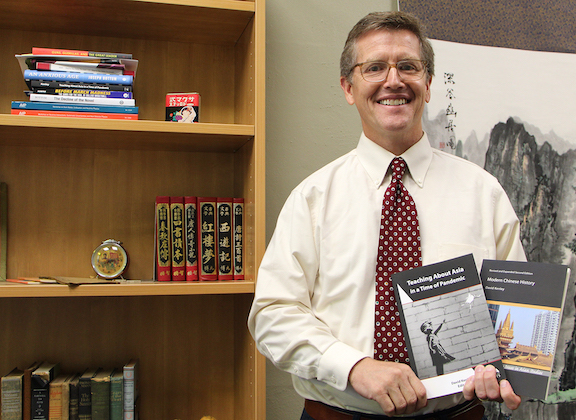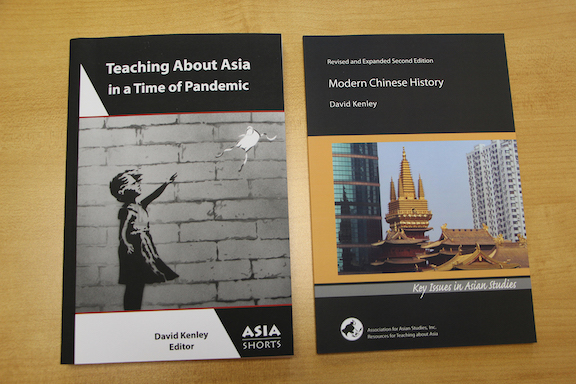DSU expert details China’s importance to 21st century workplace
July 22, 2021
This paid piece is sponsored by Dakota State University.
China is more than 6,000 miles from Sioux Falls, but the Asian country still has an impact on South Dakota – and the rest of the world.
Take, for example, solar panels. China leads with technology and development in that field and dominates that market today. China also plays an important role in cyber technology, and this ties in with supply chain management and security.
“Cybersecurity and supply chain management are two sides of the same coin in many ways,” said Dr. David Kenley, dean of the College of Arts and Sciences at Dakota State University in Madison.
With these current events facing the world today, “it is necessary for our students to realize China’s impact and to learn to collaborate where appropriate and learn to compete where appropriate,” Kenley continued.
Kenley is well-versed in Chinese history and culture, and has two books available for those interested in learning more about the country.
“Modern Chinese History” is designed for people who are unfamiliar with the country but want a quick overview of Chinese society history. This 108-page book spans the time from the Qing dynasty to current day and includes seminal events such as the collapse of the imperial system, the rise of communism and the revolutionary growth of China in the 21st century.
“Of the four books I’ve published, it’s the smallest and was the easiest to write, but it’s most popular,” he said, noting it is in its second printing with Columbia University Press.
The newest book, “Teaching about Asia in a Time of Pandemic,” was a timely project Kenley edited after seeing how deeply the COVID-19 pandemic was impacting higher education. He worked with scholars from around world to produce the collection of essays on teaching about Asia during a time of pandemic.
Section one uses pandemic examples to help people study about Asia; section two is “more of a nuts-and-bolts approach” about how to teach when socially distanced. This book is part of a series called Asia Shorts that’s published by the Association for Asian Studies and Columbia University Press.
Kenley’s appreciation for China began when he visited the country as a teenager while on a mission trip with his church.
“I quickly fell in love with the people, the culture, the food, the history, the language,” he said. He majored in Chinese language and literature as an undergraduate and went on to earn a master’s and doctoral degrees in Chinese history.
His focus is 20th century Republican China, the period from about 1911 to the end of World War II, particularly Chinese migration as people left the country to establish new communities elsewhere, such as Singapore or Havana. These migration groups had to learn to network, use creative financing and find a niche. They had to work hard to make a life in their new countries.
“The Chinese oftentimes went into businesses that were not terribly capital intensive,” Kenley said. Instead, they would develop more labor-intensive businesses.
“They saw where their strengths were, what assets they had, and they made choices accordingly,” he said.
Globalization creates a need for businesses – and college students — to understand other countries and how they function.
Kenley said the college is looking to incorporating China into the curriculum, particularly in the Cyber Leadership and Intelligence, or CLI, program.
A program of the College of Arts and Sciences, CLI is in a good position to collaborate with The Beacom College of Computer and Cyber Sciences and the College of Business and Information Systems to develop courses and training on these topics, but “there are many opportunities to integrate China into our curriculum in some very meaningful ways that are relevant to our unique mission as a school of cyber technology,” he said, adding this knowledge will help “prepare our students to meet the needs of the 21st century workplace.”









